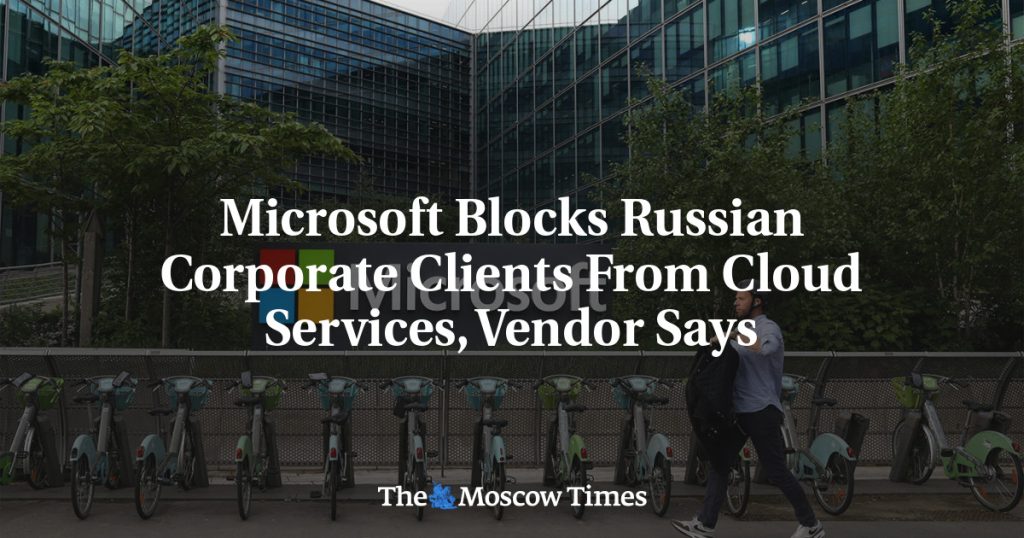Microsoft has decided to comply with Western sanctions by blocking Russian corporate clients from using its cloud services. Softline, a Russian distributor of Microsoft products, reported that the ban started with a list of products to be disconnected, in line with the EU’s sanctions package. The ban does not affect individual customers, and Softline assured its users that it has the necessary resources to promptly migrate from foreign cloud services to its own Russian-registered products. This move follows Microsoft’s announcement to suspend new sales and significantly scale down operations in Russia after the country’s full-scale invasion of Ukraine in February 2022.
In addition to Microsoft’s actions, other tech giants like Apple and Intel have also suspended operations in Russia or left the country altogether. Last year, Google reportedly began blocking its workspace apps for Russian companies sanctioned by the United States, impacting around 30% of Russian companies’ corporate information stored on Google Workspace services. These developments signal a wider trend of Western tech companies limiting their operations in Russia due to geopolitical tensions and sanctions imposed by the West in response to Russia’s actions in Ukraine.
The impact of these tech companies withdrawing services from Russia can have significant consequences for Russian businesses that rely on these platforms for their daily operations. With the EU sanctions ordering companies to stop exporting products and technology to Russia, Russian companies could face challenges in accessing essential services like cloud computing, potentially disrupting their operations. Softline’s reassurance that they have the resources to help companies migrate to Russian-registered products suggests that there are alternatives available, but the transition may still pose challenges for Russian businesses.
The decision by tech companies like Microsoft to comply with Western sanctions reflects the broader economic and geopolitical tensions between Russia and the West. As Western countries seek to impose economic pressure on Russia through sanctions, tech companies are forced to navigate complex legal and ethical considerations in their operations. The move to restrict access to cloud services for Russian corporate clients is part of a larger trend of companies reevaluating their presence in Russia and the implications of continuing business operations in the country amidst geopolitical turmoil.
The response from tech companies to the conflict between Russia and Ukraine showcases the interconnected nature of global technology markets and the impact of geopolitical events on the tech industry. By complying with sanctions and restricting access to their services, companies like Microsoft are sending a clear message about their stance on international conflicts and their commitment to upholding international regulations. The shift in tech companies’ operations in Russia highlights the challenges and complexities faced by multinational corporations operating in countries subject to sanctions and geopolitical tensions.
In conclusion, the decision by Microsoft to block Russian corporate clients from using its cloud services is a significant development in the wider context of Western sanctions and geopolitical tensions between Russia and the West. As tech companies navigate complex legal and ethical considerations, the impact of these decisions on Russian businesses could pose challenges to their daily operations. The response from tech companies reflects the interconnected nature of global technology markets and the broader implications of international conflicts on the tech industry. Moving forward, the situation between Russia and the West will continue to shape the actions of tech companies and their operations in countries facing international sanctions.















